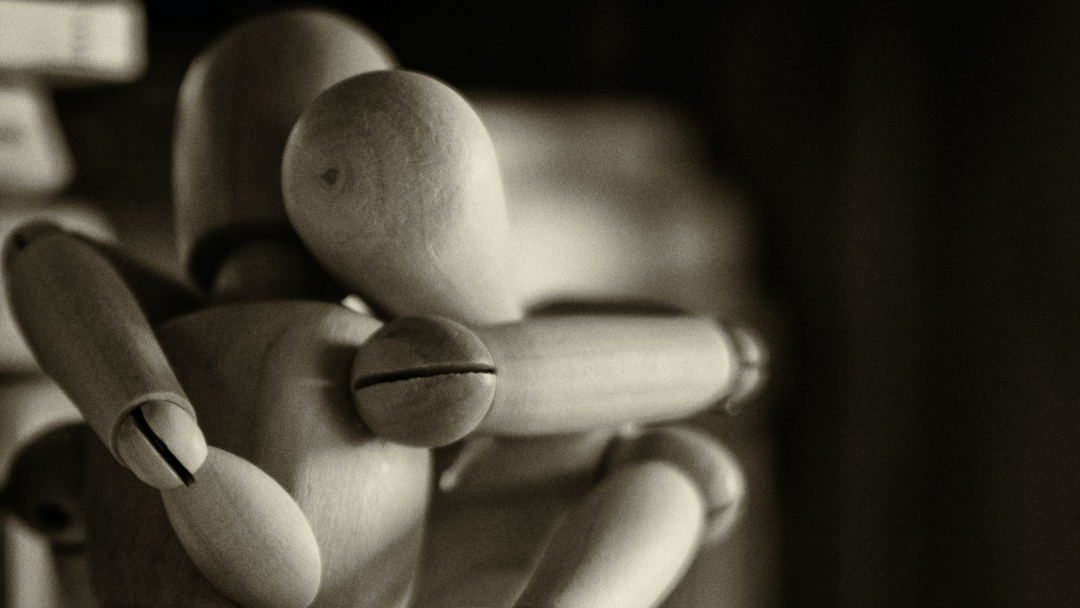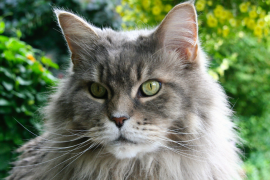I HAVE NEVER SEEN HER LIKE THIS. She’s twenty-something, young enough to be my kid, and normally dignified, professional—always wears long dark pants and flowing tops, thick sweaters, bracelets I can hear clanging as she walks to and from her townhouse. Today she sits on the steps that rise to her door, her face between her knees, her shoulders heaving, and when she raises her head and sees me, she wipes her face and waves me over. Her bag and car keys have fallen to her side; her teeth are bared in a grimace that is almost a smile. She looks at me like I am a life preserver, though we have seldom spoken; she keeps to herself, normally, so I keep to myself too, smile at her when I pass her on walks around the neighborhood, feed my birds, sweep my patio, water my outdoor planters. She cannot control her breaths now; they come in frantic spasms.
Looking at her, I feel, for the first time in a long time, a preservation instinct, a desire to turn and run, to lock myself in the house and never emerge. I wish for the comfort of that, the security. But something else kicks in and I set my groceries down on the sidewalk, rush to her side. In the afternoon heat, she reeks of sweat, but she grabs my hand, pulls me into her, and I let her; I sink to the stair, allow her to sob into my clavicle.
Kristin—are you OK? I ask. A stupid question. I stroke her hair—it’s been a while since my son has been home, and the gesture, the act of mothering, brings me a nostalgic relief.
She tries to speak, but her sobs are still coming too hard, so I prop her up and guide her through some counting and breathing exercises. I notice as I sit up that I have been crying too—I wipe my cheeks with the sides of my fingers. Match the speed of my breaths, I say, yes, just like that, a big, long inhale—feel all that air in your lungs. Now let it out—good, that’s good. Count by sevens—let’s get all the way to a hundred. Seven, fourteen, twenty-one, twenty-eight—good, keep going. Eighty-four, ninety-one, ninety-eight. . . . Good, good work.
We sit, side by side, in a moment of quiet, listen to our breaths, the rumbles of cars on the faraway cross street. I think of my groceries in the sun, the ice cream turning to mush. Yet I leave them, turn my head toward Kristin. She needs something—a body, an ear—and I am here.
I can’t stop thinking about it, she says. Can’t . . . can’t stop seeing it.
Seeing what? I ask.
She looks at me, and something seems to pass across her eyes: some apparition, some other world. Then she crumbles again, guides herself back to my shoulder.
Once I calm her down a second time, ride the wave of her emotion till she is calm and quiet, I run my groceries inside, put my perishables in the freezer, and return to her; she guides me into her house. It is strange to suddenly be this close to her, to be granted access—I have imagined her house in my newfound aloneness, imagined how she filled out the same floor plan. The place is not too different from mine, but her tastes are more modern. Her conjoined building, in its placement on the street, catches the afternoon light better than mine—it lies just past the edge of the building across the road, whereas mine sits in its giant shadow. Her townhouse catches the sun’s rays in all its mirrors and glass.
A photo of what appears to be her family is propped on the end table; she looks younger in it, around sixteen, unsure of her clothing and posture. What a lovely house, I say, and take a seat in a soft, upholstered chair. She thanks me, puts water on to boil. Fetches two mugs from the cabinet, asks me if I’m OK with chamomile. Sounds wonderful, I say.
And it is wonderful—to be in a room with another person, to lock eyes with someone other than yourself. It’s easy, too, to forget that I’m over twice her age, that I could be her mother. My son, Harry, has been urging me in his twice-per-month phone calls to get a cat, a dog, something to keep me company; he’s concerned that I’m getting lonely now, figures a pet might help. I think, I was lonely even before. I say, What might also help is you visiting your mother. Which sends him off on a spiel—on the other side of the country, long hours, travel expenses—though I’m joking, I’m only joking.
Kristin brings the tea to the living room, sits on the sofa across from me. She takes a sip, stirs a pinch of sugar in with a spoon, then says, I saw a crash.
A crash? I say.
A van, overturned. On the highway. Watched it flip over. It . . . there was so much glass. Like hail.
She is neutral, narrating this now, like she is orating a police report. Briefly, she shivers, then sinks back into her numbness.
I was behind it on the road, she continues. There was a pair of headlights further up, on the wrong side, on our side. Two-lane highway, most dangerous thing in the world. The van had just passed me, it was going seventy, eighty miles an hour. Didn’t see the headlights, apparently. Didn’t do anything. Just . . . hit what was coming.
I grimace, take a sip of my tea.
It went up in the air, she said, voice still void of affect. Like it’d been lofted up—it flipped, landed on its top. I can’t stop seeing it, can’t stop seeing the burst of it, can’t unhear the slam of the metal—and I was in front of the van originally, I was headed for it. It should’ve been me.
No, no, I say, don’t think that way. I take her wrist in my hand. Everything is meant to happen exactly as it does, I continue—there’s nothing you did wrong. I think, again, of Harry—Kristin reminds me of him. Taking blame onto himself for things that are out of her control, utterly fixed on his faults. Needing someone to be there for him, needing. I itch at my forearm.
She laughs a hollow laugh. I guess you’re right, she says without conviction.
Are you sure you’re all right? I ask. Is there anyone you can call, any family?
I think of Harry calling me. Wish I had always answered, always.
I feel fine, she says. Weirdly empty, like I’ve gotten it all out. And no. They’re gone.
I’m sorry, I say. I release her wrist. Think of my own absences, feel them warming my hands, my chest. Push them down again, again.
All at once, she says. Car accident, if you can believe. I stayed home because of a test I had to study for.
Gosh, I say. My hands are slick, pressed together.
They were taking my sister to a volleyball tournament. Her team came in second and I never got to congratulate her.
I make some nonplussed noise—stunned, still, by the impersonality of her voice, the absence of feeling in her. Like these events happened on a TV show she watched years ago and has nearly forgotten, like she’s struggling to dredge them up from where they have rested all this time. Like they’re not fresh in every inch of her blood—but she’s numbed, now, after letting everything out on the steps. Her body has expelled all the feeling; now she is blank again.
But enough about me, she says. How are you? You seem well, from my eyes.
I am well, I say. Take another sip of my tea, swirl its bitter on my tongue. Think about how the grief has stabilized within me, but how it occasionally ruptures me. How my various failures have ruptured me.
I am mostly well, I say.
Mostly? she asks.
I focus on her brow, watch it twitch. Count the slight creases in her forehead. Feel something happening in me, some remembering, some unfurling.
I lost my husband recently, I say.
Oh, god, I’m sorry, she says. I wondered why I hadn’t seen him in a while. She watches me sit here and darken. I don’t know why I brought it up, she says, you don’t have to talk about it.
No, I say, it’s OK, it’s only the truth.
Her brow continues to twitch, like it’s trying to inch itself off her head.
Losing him, I continue, wasn’t easy, you’re right. I feel it every minute. But eventually the feeling becomes less like the floor falling out from under you and more like a tap on the shoulder. A little reminder, a little thing, like: Hey, he used to do this one thing that you liked when you came back from getting the mail. He hated fennel and now you eat it all the time. Not the devastating way the reminders used to be, but there, still.
She has set her hand atop mine now—her fingertips are cold. Says, in her flat affect, You saved me today. Though she seems unsaved: eyes glazed over, like there is a film behind her lids she can’t stop watching, the corners of her mouth barely raised in a smile, her voice never rising above its middling pitch. She has wrestled something down, and I am waiting for it to rise again. I am intimately familiar with the way the unwieldy things rise and fall, rise and fall, like they are floating on a sea.
In bed in the evening, I imagine what it would be like to have a cat perched at the foot of the bed, limbs curled under itself, eyes squished shut in sleep. Purring when I scratched behind its ears. In the morning, I will call Harry and tell him that some parts of the idea sound nice, that maybe I am coming around to it. I will call Harry, and if he doesn’t answer, I will text.
I fall asleep thinking of this, and wake when I hear a scream from the other side of the wall. From Kristin’s side: a ghastly sound, seconds long. Then, pounding on the wall: her fists, again and again, tremoring through the frames I have hung, causing them to shift and rattle.
I stand in my thin nightgown, pull on a sweater and some slippers, and tear out my front door, around the bend, up onto her porch. I knock, knock, eventually pull open the screen and go for the knob, but the door doesn’t budge. The light is on, the single bulb, casting the stoop in amber. Kristin! I call.
The door twists open suddenly, and she is there, eyes pooled with grief. Again she can hardly speak, but she chokes out, It was supposed to be me.
No, it wasn’t, I say. It wasn’t supposed to be you, you were saved.
I wasn’t supposed to be, she says. It was Mom and Dad and Sara trying to get me back.
No, I say, they saved you, they saved you.
And seven people died. Because of that. It was supposed to be me.
No, I say, no, no, no, again and again, because I don’t know what else to say.
The room behind her is dark, moonlit in patches. She turns to look at nothing. Eventually she hears me, says, You’re right, I’ll be OK, I just had a night terror, it’s all fading now. Ushers me away, sends me back to bed. Wears her best smile as I turn and descend her steps. I chew on whether to leave her be, but decide to follow her orders. Halfway to my house, I turn back and give her place a once-over. I spot her in the window of her narrow third-story attic, looking at me with placid eyes. She throws the window open, still mutters to herself. It was supposed to be me, again and again.
Don’t you dare, I say. I imagine someone else perched there—think of all the times I was not there to save him, all the times I let him fend for himself. All the times he needed me to talk him down. Of course he left this little city—why wouldn’t he have. I run back to her porch, try her door, find it locked still—I can kick it in, if I need to. I dart back down the steps, peer up at her.
It was supposed to be me, she says.
Don’t you dare jump, Harry, I shout. I shake my head, shake him out of my eyes.
His voice, phone-tinny, clogs in my ears: You weren’t there.
I’m here, I shout up to Kristin—I’m here.
She leans out the window, swings a foot over the sill. Looks all the way down.
HAYDEN CASEY (@haydenmcasey13) is a writer and musician. He earned a BA in Psychology from the University of Washington and an MFA from Arizona State University. His fiction has appeared in Witness, West Branch, Bat City Review, Allium, and Yalobusha Review, and he was recently longlisted for the Dzanc Books Prize for Fiction.
Like what you’re reading?
Get new stories, sports musings, or book reviews sent to your inbox. Drop your email below to start >>>
NEW book release
Ghosts Caught on Film by Barrett Bowlin. Order the book of which Dan Chaon says “is a thrilling first collection that marks a beginning for a major talent.”
GET THE BOOK



